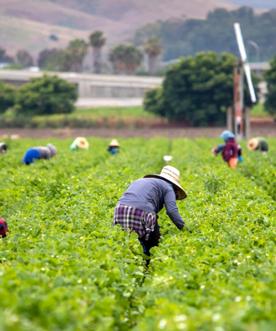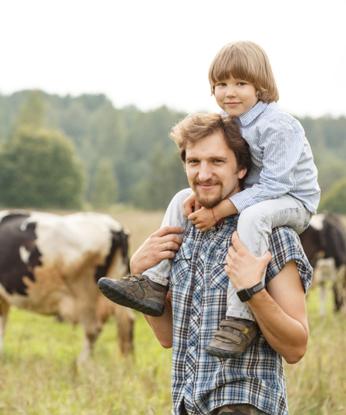Go to homepage
Society
1164 articles & resources
E.g.: irrigation, David Simmons, biomass,...


1164 articles & resources


Document
05-08-2022
This innovation action will provide a unique and innovative way of evaluating health as a component of forest ecosystem services. The goal is to develop several scenarios for payments of those services, as well as empower future management of the protected area. It may also allow some programmes to be launched in cooperation with health institutions on activities related to human health and rehabilitation. In parallel, the case will raise public awareness about forest ecosystem services in order to increase uptake, and so that all stakeholders and park visitors recognise the benefits of forests for their health.
Document
09-08-2022
The “Mushrooms of Borgotaro IGP” are produced in the woods of the Tuscan-Emilian Apennines. The way the woods are managed has a great influence on the micro-climate of the undergrowth and consequently on fungal production. The Consorzio Comunalie Parmensi intends to improve the commercialisation of recreational permits for wild mushrooms collection in forest through an online platform. One of the main goals of this innovation case is to have a better distribution of mushroom pickers in the forest, avoiding their concentration in specific areas.
Document
23-10-2020
A guide for thematic network coordinators and consortium members to design and implement thematic networks for maximising user engagement and impact.
Document
11-05-2022
LIAISON a elaborat cinci Ghiduri pentru a sprijini practicienii care fac parte din inițiative de co-inovare. În aceste ghiduri, un „practician” este orice persoană sau organizație care dorește să participe în cadrul inițiativelor sau proiectelor de co-inovare sau care dorește să sprijine partenerii implicați direct în inițiative care inovează prin intermediul unor procese participative. Aceste Ghiduri evidențiază ceea ce am învățat din activitățile proiectului LIAISON și din colectarea de date. Scopul este acela de a-i ajuta pe toți cei care le folosesc să îmbunătățească modul în care co-inovează în dezvoltare rurală, silvicultură și agricultură.
Document
30-06-2021
The final publication of OG Pocketboer II provides an overview of the most important findings during the OG Pocketboer (I) and OG Pocketboer II.
Document
24-11-2016
It summarises the reports from all Cross Visits. During the Cross Visits the AgriSpin team gradually learned how to capture what really matters in the cases that were visited. It is important that the characteristics in the overview are helpful for: ● deepening the understanding of the individual cases and the effect of particular innovation support actions; ● making comparisons between cases, even though they represent different sectors and cover different types of innovation.
Document
05-08-2022
This factsheet explores how managing forests to be used as spiritual forests and forest kindergartens could benefit both the forest and the forest owner. The core impact of the case study is to raise awareness of the importance of cultural ecosystem services and to motivate forest actors to manage forests appropriately.
Document
09-08-2022
This innovation case is strengthening the link between forests and water with the overall aim of diversifying financing sources for forest management by integrating ecosystem service provision into the economic balance sheet. Work includes integration in the Urban Masterplan for the Rialb Reservoir where different local stakeholders (economic, tourism, water and others) are already working together. The aim is for written recognition in a legal document of the role of forestry in water and landscape conservation, and the recognition of forestry as a potentially relevant economic activity in the area that can be promoted along with tourism. The innovation action also works with the public Segre-Rialb Consortium to assess the suitability of a payment for ecosystem services scheme in relation to water in the area.
Document
11-05-2022
LIAISON a elaborat cinci Ghiduri pentru a sprijini practicienii care fac parte din inițiative de co-inovare. În aceste ghiduri, un „practician” este orice persoană sau organizație care dorește să participe în cadrul inițiativelor sau proiectelor de co-inovare sau care dorește să sprijine partenerii implicați direct în inițiative care inovează prin intermediul unor procese participative. Aceste Ghiduri evidențiază ceea ce am învățat din activitățile proiectului LIAISON și din colectarea de date. Scopul este acela de a-i ajuta pe toți cei care le folosesc să îmbunătățească modul în care co-inovează în dezvoltare rurală, silvicultură și agricultură.
Software Application
31-12-2023
Short food supply chains (SFSCs) can be pointed out as one of the most straightforward approaches for connecting consumers and producers in agri-food supply chains. They are identified as a more sustainable way of producing, processing, and/or selling food, which demonstrates a “turn to quality” in both agriculture and consumption. Traditionally, SFSCs allowed producers to have a strong position in the food chain, but their role decreased with Europe’s industrialisation and long-distance transportation, urbanisation, and technical advances. Nowadays, renewed consumer interest in direct purchasing, created by an interest in safe produce has boosted the resurgence of SFSCs. European legislation lays the foundations for their promotion through legal and policy incentives implemented in the framework of national Rural Development Programmes (RDP). The agroBRIDGES project aims at empowering farmers with practical knowledge, tools and support to rebalance their market position by setting up new business and marketing models based on Short Food Supply Chains (SFSCs), with a focus on building bridges between producers and consumers. Along these lines, the project followed an integrated methodology by establishing regional multi-actor structures for demand-driven innovation, and delivering a combination of communication materials, training programmes, events, decision support and other digital tools packed in the agroBRIDGES Toolbox (www.agrobridges-toolbox.eu). More than 2,500 producers, consumers and other agri-food stakeholders have been involved in testing, validating and ultimately benefitting from the roll out of the agroBRIDGES Τoolbox and its practical support.